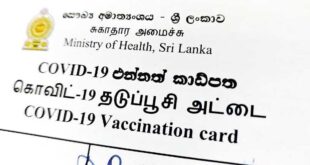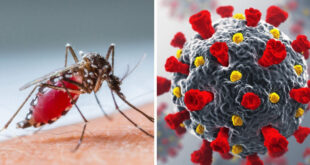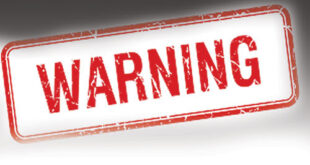Source – from Dailymirror.lk
Dengue fever plagues Sri Lanka annually, increasing after a rainfall when conditions are optimal for mosquito breeding. Climate fluctuations also accelerate the epidemic’s spread and people must be mindful that dengue is again on the rise due to incessant rains during the last three months.
There has been a sharp increase in dengue cases and related deaths this year compared to last year. An island-wide toll of 72,085 cases and 90 deaths have been reported since January this year, alarming epidemiologists across the country.
The current outbreak is occurring amid heavy rains and flooding affecting 11 of the country’s 25 districts. Heavy monsoonal rains, rain-soaked garbage, stagnant pools and other potential mosquito larvae breeding grounds have contributed to this year’s higher number of cases and deaths, especially in urban and semi-urban areas.
Causing disease in two forms
According to the Epidemiology Unit (EU) of the Health Ministry, dengue is an acute flu-like fever caused by a virus. It causes disease in two forms. The first is Dengue Fever (DF) which is marked by an onset of sudden high fever, severe headache, pain behind the eyes and pain in muscles and joints. Some may also develop a rash. The second is Dengue Haemorrhagic Fever (DHF), which is a more severe form, seen only in a small percentage of those infected. Typically DHF is characterised by high continuous fever lasting for less than 7 days, bleeding from various body parts – including the nose, mouth and gums or skin bruising, severe continuous abdominal pain due to enlarged liver, and shock in severe cases. This can lead to death. DHF is more serious in children.
The World Health Organization (WHO) states that 400 million dengue infections occur annually worldwide, with about 96 million resulting in illness. Most cases occur in tropical areas, with the Indian subcontinent, Southeast Asia and Southern China being at greater risk.
Symptoms
It is in fact important to educate people as to how dengue infects them. When speaking of symptoms of dengue desease, the initial step is to examine whether a high fever of 40°C/104°F is accompanied by two of the following symptoms i.e. severe headache, pain behind the eyes, muscle and joint pains, nausea, vomiting, swollen glands or rash.
According to the WHO, symptoms usually last for 2 to 7 days, after an incubation period of 4–10 days after the bite from an infected mosquito.
The illness may progress to Dengue Haemorrhagic Fever (DHF) which includes symptoms like severe abdominal pain, vomiting, diarrhoea, convulsions, bruising, and uncontrolled bleeding. High fever can last from 2 to 7 days. DHF is considered to be the fatal state of the dengue desease. Complications can lead to circulatory system failure and shock, and can be fatal. This is also known as Dengue Shock Syndrome.
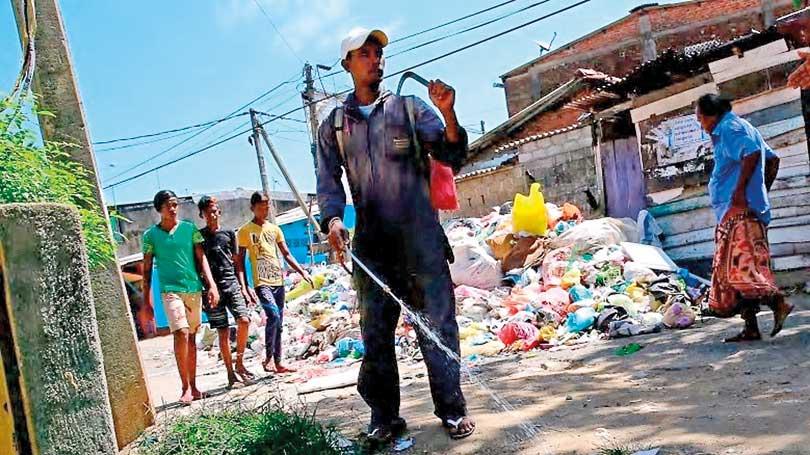
There are certain steps recommended by dengue specialists in order to control Dengue
Treatment
The best advice that a dengue specialist would give a patient with dengue fever is to take necessary medicines prescribed by a qualified doctor and rest at home. This will help the patient recover faster. Patients must be given plenty of fluids to drink and allowed to eat what they can.
Increase
Speaking to the Daily Mirror, National Dengue Control Unit Director Dr Aruna Jayasekara said dengue was escalating due to prevailing incessant showers. He added there was a sharp increase in dengue-related deaths this year compared to last year. “The most number of deaths and cases have been reported from the Western province,” Dr Jayasekara said.
“The number of cases and deaths usually increase in November due to the North East monsoon. However, we are experiencing some unexpected rains these days, which have increased the number of dengue cases and deaths,” he noted. Dr Jayasekara asked the public to be vigilant of all types of mosquito breeding sites.
“People should regularly take steps to destroy such places. At least 30 minutes a week should be dedicated to cleaning mosquito breeding sites” he said.
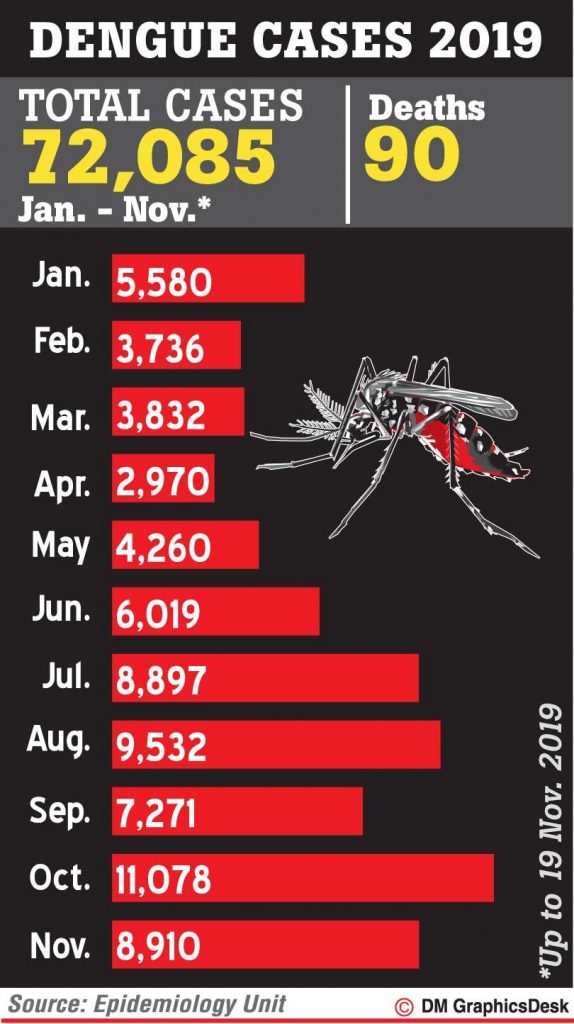
Comparison
When analysing the dengue trends, only 58 dengue deaths were reported for the whole of 2018 with 51,659 cases, which is lesser than the number of cases reported within the 11 months this year. The Epidemiology Unit has identified five high risk districts such as Colombo, Gampaha, Kalutara, Ratnapura and Galle districts. Colombo district recorded a total of 15,393 dengue cases which is the highest. The second highest number of cases, 11734, was reported from the Gampaha district. The third highest number of dengue patients, 6539, has been reported from the Kalutara district.
The most number of deaths and cases have been reported from the Western province – Dr. Aruna Jayasekara
Accordingly, the Western Province recorded a total of 33,666 dengue cases which is the highest among the provinces. The highest incidence of dengue cases, numbering 11,078 was reported in October.
Prevention and control
There are certain steps recommended by dengue specialists in order to mitigate the Dengue fever, for which no specific treatment has yet been found. However, the following remedies would definitely control the spread and infection of dengue fever.
- Preventing mosquitoes from accessing egg-laying habitats by environmental management and modification.
- Disposing of solid waste properly and removing artificial man-made habitats.
- Covering, emptying and cleaning of domestic water storage containers on a weekly basis.
- Applying appropriate insecticides to water storage outdoor containers.
- Using of personal household protection measures, such as window screens, long-sleeved clothes, repellents, insecticide treated materials, coils and vaporizers (These measures have to be observed during the day both at home and place of work since the mosquito bites during the day).
- Improving community participation and mobilization for sustained vector control.
- Applying insecticides as space spraying during outbreaks as one of the emergency vector-control measures.
- Active monitoring and surveillance of vectors should be carried out to determine effectiveness of control interventions.
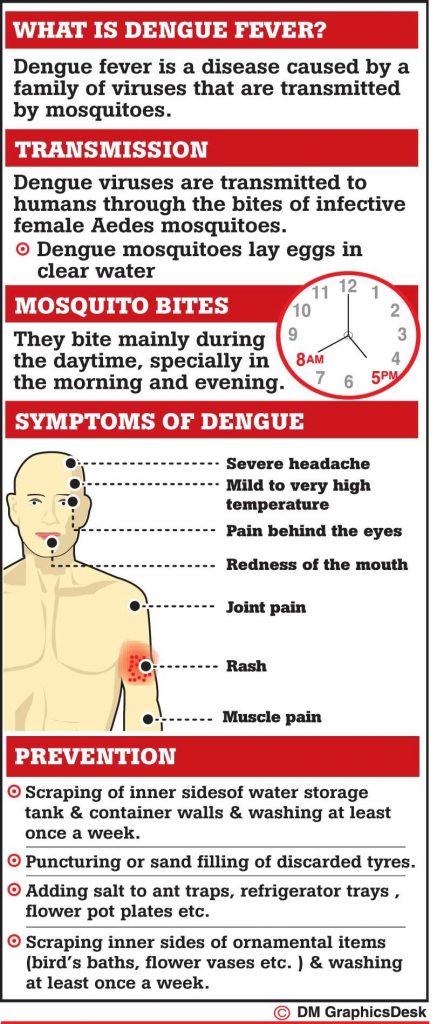
Post Disclaimer | Support Us
Support Us
The sailanmuslim.com web site entirely supported by individual donors and well wishers. If you regularly visit this site and wish to show your appreciation, or if you wish to see further development of sailanmuslim.com, please donate us
IMPORTANT : All content hosted on sailanmuslim.com is solely for non-commercial purposes and with the permission of original copyright holders. Any other use of the hosted content, such as for financial gain, requires express approval from the copyright owners.
 Sri lanka Muslims Web Portal Sri Lanka Muslims News Center
Sri lanka Muslims Web Portal Sri Lanka Muslims News Center
 Donate
Donate